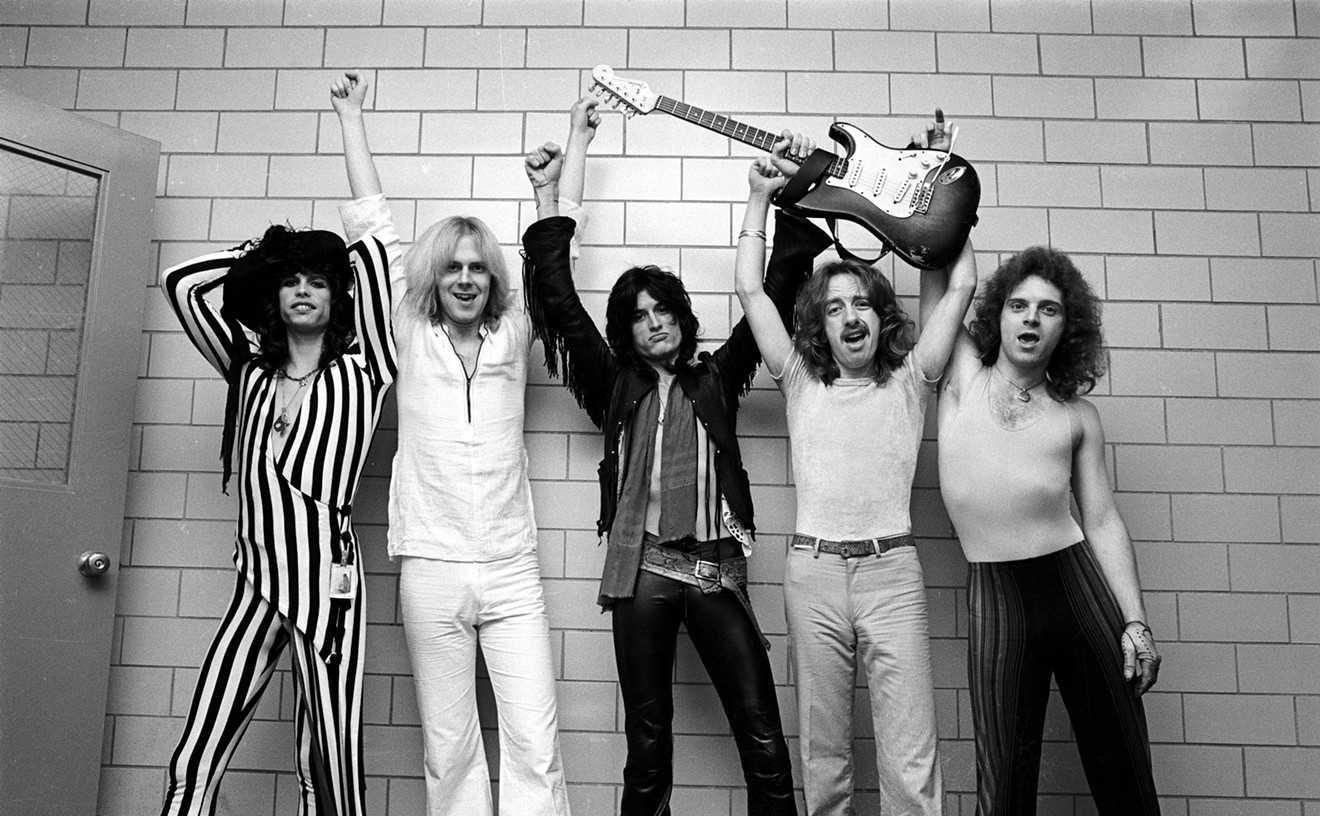For decades, punk and metal have been an outlet — a means for fans and musicians to escape reality. For Suicidal Tendencies, that's changing. With the release of 13, the band's first album since 2000, singer Mike Muir is looking for listeners to embrace his realities.
It has been 30 years since Suicidal Tendencies' self-titled debut. At the time, Muir was an angst-driven 20-year-old paving the way for skate punk alongside groups like Bad Religion and Big Boys. Suicidal Tendencies earned the group the respect of skateboarders everywhere as it churned out some of the best hardcore punk of the decade.
Now 50 years old and 13 studio albums deep, having experimented with punk and thrash and concepts and compilations, he's back with a new Suicidal Tendencies lineup and a new outlook.
13 picks up where the band left off with its 2000 release, Free Your Soul and Save My Mind. It's a showcase of the band's considerable musical talent in combining punk ethos and metal flavors with hints of funk and jazz.
"A lot of times, you can tell when [a band is] trying to do music for a particular audience, rather than maybe for themselves," Muir says. "We wanted to do a record that, most importantly, we wanted and that we loved. I hope 20 years from now, when people hear it, they think it's a great record and won't get caught up with what style it is or isn't."
Formed in Venice, California, in the early '80s, Suicidal Tendencies managed to become crossover thrash pioneers despite dozens of lineup changes. Muir is the only original member, and the band currently includes Eric Moore (drums), Dean Pleasants and Nico Santora (guitars), and Tim Williams (bass). Only Pleasants played on the most recent ST record.
Early on, the group found it increasingly difficult to book shows because of rumors of its members' affiliation with local gangs and consistent violence at their shows. Los Angeles even banned the group from playing in the city, its exile lasting into the early '90s.
The late '80s brought more metalheads into ST's crowds, thanks to albums such as How Will I Laugh Tomorrow When I Can't Even Smile Today and 1990's Lights, Camera, Revolution, which featured groove-oriented bassist Robert Trujillo, who later joined Metallica.
"A record should be more like a chapter of a book, and you can't just keep writing the same chapter over and over," says Muir. "It should be different, good or bad. If you hear a record and you feel like you heard the song before, that isn't good. Music should be a challenge."
On 13, Muir cites tracks like "Life," "This World," and "Make Your Stand!" as favorites.
"They aren't easy songs; they're not the catchy sing-along songs that puts a smile on everyone's face," says Muir. "Not to attack the Beatles, but I realized a long time ago that if you put a Beatles song on, you sing along, but even if you paid me $100, I couldn't tell you the words. At some point, it stops having meaning for a lot of people, even though it's a classic. We're aiming to not have people forget the purpose. And that happens a lot in pop songs."
Of course, few classic hardcore songs are immediately recognized as classics, a lesson Mike Muir began learning with Suicidal Tendencies' first album.
"When our first record came out, all the punk bands said it sucked because it was metal, and all the metal bands said it sucked because it was punk. Then, years later, it became a classic. That [also] happened with the second and the third ones," Muir says, laughing.
But for the most part, his writing style hasn't changed and it probably never will — with the exception of ProTools, without which 13 may never have been finished.
"When we got ProTools in 2003, that was a game-changer. Previously, you'd go on tour for a year and come back and you'd go to the studio and do 20 songs and put them out," says Muir. "Now, with ProTools, you can go into the studio whenever you want — on tour or not — and write. Eventually, we had close to 200 songs, so we knew we needed to put out a new album."
And though Suicidal Tendencies still avoids easy-on-the-ears tunes and commercialized mainstream success — a development common to decades-strong punk and metal bands — the musicians' original outlook has changed significantly.
"I think everyone has realized that life is more important than making music. But too many people use music as an excuse not to live life — put on headphones, smoke pot, drink beer, and say, 'The world's fucked up, so I'm gonna tune out.'
"But we do it to motivate people, to . . . give [them] a little kick in the ass every once in a while, because we all need that."
That message has always resonated with the fans. Since coming back to the scene, the band has received countless e-mails, ranging from kids who are seeing them for the first time to parents who saw them 25 years ago.
"I think sometimes we remind people not only why they love Suicidal, but also how much they actually love Suicidal," Muir says. "And it surprises them."
"In general, everyone forgets the strength that they have, and they need someone to remind them. We like to be able to remind those older fans that they can still do stuff that they meant to do in the past. It's good to see people progress in life, no matter how old they are."
No one can argue with that, considering Muir has been making music for more than three decades. But even he doesn't know what the next 13 years of his career will look like.
"In the last 13 years, I've had a couple of back surgeries, had some kids. A lot of the guys in the band had family members pass away."
But could their first album in all that time also be Suicidal Tendencies' last?
"When the first record came out 25 years ago, I even said then that it might be the first and it might be the last record . . . I can't say for sure, [but] I think it's a stronger chance this could be the last one compared to what I said then."
But no matter how old you are or how many years fly by, it's all just numbers.
"I've never tried to project what could happen in five years — back then or now."











